Ncuti Gatwa may have been the first Doctor to be revealed on Instagram, but different Doctor Who actors have been unveiled in many different ways over the years. But the battle to keep the new Doctor a secret is one the BBC usually wins, and sometimes loses…
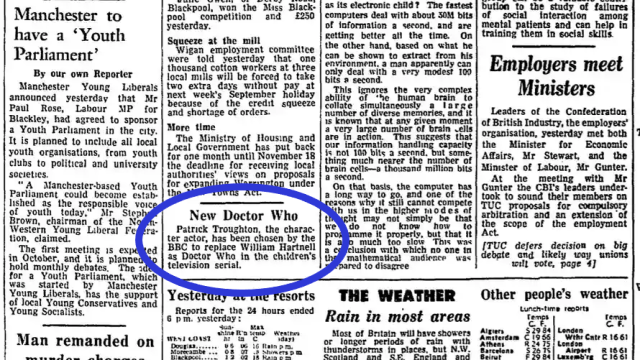
The unveiling of Ncuti Gatwa as the new Doctor came out of the blue. It’s a reveal that has the unique distinction of being the first time one of the Doctor Who actors has been revealed on Instagram, with Gatwa’s teasing post last Saturday showing two hearts, a plus sign, and a blue square. And when Russell T Davies himself immediately commented that “The future is here!” speculation went into overdrive.
It’s an appropriate way to announce the Fourteenth Doctor, the first of our Doctor Who actors to have their breakthrough role on a streaming platform (Sex Education.) But in these changing times, it’s worth looking back at the history of Doctor Who actors, and how Ncuti Gatwa’s predecessors have been unveiled to the press.
In the cases of the 1960s Doctor Who actors, the initial announcements were relatively low-key affairs. With the original Doctor William Hartnell, this was understandable; after all, the first episode of Doctor Who was yet to be made, and there was no particular cultural significance to a jobbing character actor getting a new role that nobody had heard of.
Hartnell’s involvement seems to have been announced along with the unveiling of Doctor Who itself, at a BBC press conference in Blackpool on the 12th of September 1963. This was less than two a half months before ‘An Unearthly Child‘ aired, and two months after the former Army Game star was cast. The announcement of the new show “which borders on science fiction” and its lead actor were reported in The Times and trade newspaper Television Mail the following day.
By the time Patrick Troughton took over the TARDIS, there was slightly more interest. But this time, a simple press release was distributed to the newspapers and more publications chose to cover the story, with the Guardian and the Telegraph both reporting about the “changed Dr. Who” on the 2nd of September 1966 , along with quotes from the show’s originator Sydney Newman that the BBC had “found exactly what we wanted in the person of Patrick Troughton.”
This was exactly a month after Troughton had signed on for a role, which itself had been three days before the announcement of Hartnell’s departure.
By the 1970s, new Doctor Who actors were revealed with photo calls to charm the waiting press
With Jon Pertwee’s unveiling, the announcement of Doctor Who actors began to become a more modern affair. It was also the closest the show had gotten to keeping the identity of the new Doctor secret until the regeneration. Pertwee had posed for photos for the press and given interviews about his new role on the 17th June 1969, but the news was embargoed until Friday the 21st, just one day before the Second Doctor hurtled into the void at the end of ‘The War Games.’
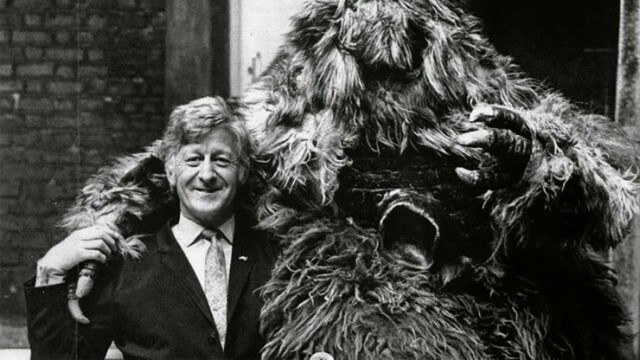
The timing, the access to exclusive photographs and, above all, giving Pertwee the chance to unleash his considerable charms on journalists, all paid off. Coverage, along with eye catching photos, appeared in The Times and The Sun, and even earned a spot on the front page of the Daily Express.
By the time Pertwee himself bowed out, the eleven year old Doctor Who was verging on ‘national institution’ status, and the casting of Doctor Who actors – both the Doctors themselves and their companions – generated considerable press coverage. Indeed, the casting of the Fourth Doctor saw the origin of speculation pieces in the press. When Pertwee’s departure was announced on the 8th of February 1974, The Sun ran a story suggesting that they knew the next Doctor had already been cast, but that his identity was still a mystery.
Indeed, Tom Baker had been cast one day before following a whirlwind of events. Tom Baker (as a struggling actor) had previously written a letter to the BBC’s incoming Head of Drama looking for work – and just two days later, he was offered the lead in one of the BBC’s flagship shows.
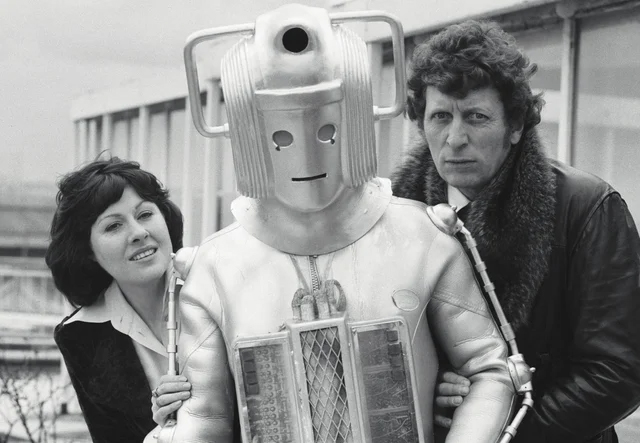
Baker’s identity was revealed to the press a week later on the 15th, when he appeared, in his clothes, for a special photo call alongside co-star Elisabeth Sladen and a Cyberman. And, in a move which is more like what we’re used to today, the BBC chat show Pebble Mill at One announced the news on air with an interview of Baker himself. The ante was upped once again in the press, with The Times, the Daily Mirror, the Daily Mail, the Daily Express and the Guardian all carrying the news and, in some cases, interviews with Baker, over the next few days.
The Evening Standard made Baker’s casting its front page story, famously causing jaws to drop at the building site where Tom Baker was still working until his first BBC cheques arrived. Impressively, that itself became further promotion for both Tom Baker and Doctor Who as photos of the building crew toasting their newly-famous friend made the papers later the following week.
Under the media-savvy eye of John Nathan-Turner, new Doctor Who actors were teased out across multiple events
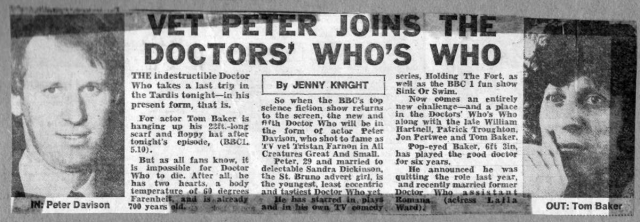
After seven years, Tom Baker’s curly hair and long scarf had become one of the most iconic sights on television, and the comings and goings of Doctor Who actors was big news. Baker’s departure was announced on the 24th of October 1980 and was even an item on that night’s Nine O’Clock News.
The speculation game about his replacement also reached fever pitch in the press, with The Sun beginning what would become a long tradition of wild guesswork by suggesting Larry Grayson, John Cleese or Margaret Thatcher. Indeed, it was at this point that the recurring suggestion of a woman playing Doctor Who first appeared, suggested by none other than Baker himself. But it would be another 37 years before that actually happened…
Peter Davison was announced as the newest in the growing line of Doctor Who actors in a surprisingly understated way with a simple press release. But Davison was already a famous actor thanks to playing Tristan Farnon on the BBC’s hit show All Creatures Great and Small, and this led to almost the entire national press covering the story with headlines such as “Tristan boards the TARDIS” the next day.
Though in a break with normal practice, Davison began acting as an ambassador for Doctor Who almost immediately, representing the show on programs like Blue Peter – despite there being four and a half months until his predecessor regenerated.
Meanwhile, the actual unveiling of Colin Baker as the Sixth Doctor a few years later was relatively low key, but this seems to have been part of John Nathan-Turner’s strategy. Even though Baker had signed as the new Doctor long before Davison’s departure was announced, the reveal of Baker as his replacement was held back by three weeks until the 28th July 1983, with radio interviews not starting until the following week.
A photo call alongside co-star Nicola Bryant then took place on the 19th August to ‘launch’ Colin Baker as the Doctor, essentially gaining three bouts of news coverage from one changeover between Doctor Who actors.
In 1987, Sylvester McCoy became the first of our Doctor Who actors to only be cast after their predecessor had left the role. Colin Baker had been unceremoniously fired, and understandably declined to return for a regeneration story. The 72 days between the BBC admitting that Baker wouldn’t be returning, and the unveiling of McCoy as his replacement, contained some of the most wild speculation yet, including claims that over 600 actors were being considered.
In the end, McCoy’s reveal was spread out for the maximum opportunities for publicity. The press were informed of his joining the line of Doctor Who actors on the 27th February, just three days after the actor himself was told he’d won the part, with The Sun and other papers reporting it on the 28th. But the photo call with Bonnie Langford and the TARDIS prop was held back until the 2nd March, creating a second wave of press coverage.
McCoy and Nathan-Turner undertook what was practically a press tour over the following weeks, promoting the show’s new era in various media interviews, even travelling to the United States to help build coverage.
Paul McGann’s reveal in 1995 ended one of the silliest eras of press speculation about new Doctor Who actors
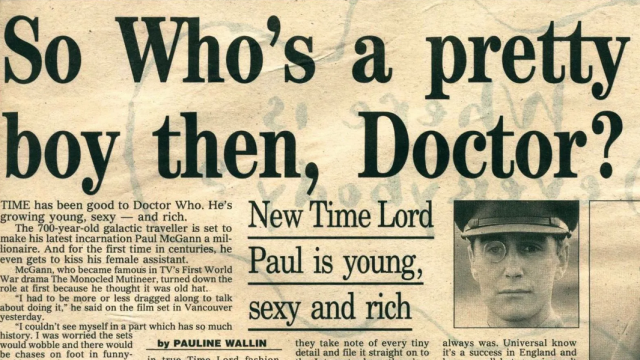
With Doctor Who off the airwaves, the period from 1990 to 1995 was truly ‘silly season’ for speculating about new Doctors, with wish lists and random claims including the likes of magician Paul Daniels and comedy duo the Krankies, all of which were dragged out to fill up space on a slow news day.
But the media hungrily leapt on the news when Paul McGann was actually revealed on the 10th January 1996. And in a sign of the changing times, McGann’s first interview was with breakfast show GMTV, which hadn’t even existed when McCoy was announced. Strangely, it seems to have been left to Doctor Who Magazine to arrange a photo shoot with McGann, bringing him to the Longleat Doctor Who exhibition to post with their replica console and, for some reason, a crystal paperweight.
The 00s brought a constant battle to keep Doctor Who’s secrets from the media – one the Who team didn’t always win
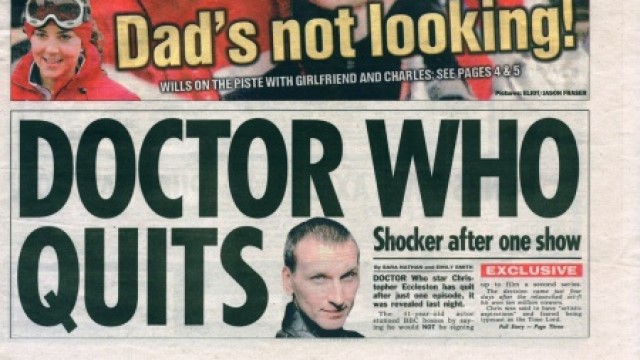
In 2004 it was ‘take two’ for relaunching Doctor Who as a show ready for a whole new century. In the meantime, the press have moved on to making guesses about Alan Davies or Hugh Grant being the new Doctor. It was also the first time that the media’s hunt for a scoop grew so extreme that the BBC was forced to rush out a midnight press release on the 20th March to get ahead of Christopher Eccleston’s identity being leaked.
But their eagerness to be beat the others to the news led to another remarkable first, as the Daily Mail ran the wrong name on its front page – announcing Bill Nighy as “The new Doctor Who, actually.”
If Eccleston’s casting had sailed close to the wind with being spoiled by the press, the media finally defeated the BBC secrecy around Doctor Who actors with his departure and replacement the following year. For the first time, a newspaper ran with the news of a new Doctor without BBC confirmation, as the 30th March editions of the tabloids revealed that Christopher Eccleston would not be returning for a second series and that David Tennant would be the Tenth Doctor.
The BBC didn’t confirm that Tennant actually would be the new Doctor until the 15th April, the day before ‘Aliens of London’ aired. Davies had hoped to keep Tennant’s identity a complete secret until the final moments of ‘The Parting of the Ways,’ but the media coverage had forced their hands. The unique circumstances also meant that it was agreed that Tennant would give no interviews about Who until Eccleston’s final episode had aired. It made for a changeover between Doctor Who actors that was both terribly exciting, yet unusually muted.
The unveiling of Doctor Who actors in the 2010s became increasingly elaborate, with live TV shows and specially-filmed minisodes
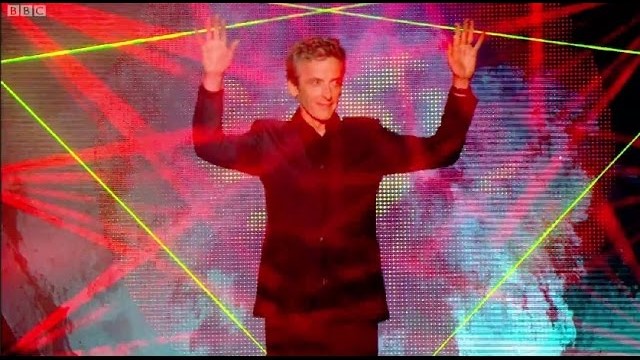
But “muted” isn’t a word that could be used to describe the launching of new Doctor Who actors during Steven Moffat’s reign as showrunner. With the Eleventh Doctor, the unveiling of the new actor was teased for the first time with a pre-announcement announcement informing the public that they were going to find out who the Eleventh Doctor on the 3rd January 2009.
This took the form of a special episode of Doctor Who Confidential, with Matt Smith’s reveal having an entire half hour program devoted to it. ‘The Eleventh Doctor’ even built up anticipation more skillfully than a Britain’s Got Talent final, as various writers and actors teased how perfect the new actor was, and hinted at who they might be, before Matt Smith himself appeared for an exclusive television interview about becoming the newest of the Doctor Who actors. The special episode was filmed and broadcast only days after Smith had won the role, underlining how sensitive the team now were to leaks.
Over the years, the scale of the dangers the Doctor has faced have kept escalating. And the same is true of the reveals of new Doctor Who actors. Following on from Smith’s televised reveal, in 2013 the BBC announced a change to their schedules giving two days’ notice of Doctor Who Live: The Next Doctor at 7pm on the 4th August.
A live extravaganza hosted by Zoe Ball in front of a studio audience of fans, ‘The Next Doctor’ saw a succession of celebrity guests talk about their love of Doctor Who and their excitement about the new actor – all climaxing with a burst of stage smoke and an explosion of lasers as Peter Capaldi stepped out on stage, lapels firmly clutched in Hartnell fashion. It was the ultimate in razzmatazz for a casting reveal, which seemed to leave even Capaldi faintly bemused.
Four years later it was the turn of the current Doctor, Jodie Whittaker to be unveiled. There was no live stage show or exclusive special this time; instead, the latest of the Doctor Who actors was revealed via two specially shot minisodes. Again, there was a pre-announcement announcement, with a teaser trailer on the 14th July 2017 which showed the number 13 appearing mysteriously all over the world, followed by the TARDIS key glowing, sparking and vanishing. The teaser then informed viewers that the new Doctor would be made public after the Wimbledon final two days later on the 16th, timed for maximum viewers to catch the news.
That second minisode showed the mysterious figure of our new Doctor in long coat and pulled-up hoodie as she made her way through woods. The glowing TARDIS key materialised in her open palm, accompanied by the familiar wheezing and groaning sound, before Jodie Whittaker pulled down her hood to reveal herself as the first woman to be cast as the Doctor and, with a wry smile, made her way to the waiting TARDIS.
The first of our Doctor Who actors to be revealed on social media, Ncuti Gatwa’s was a name successfully kept secret for months
Which brings us full circle to Ncuti Gatwa again. Perhaps the most remarkable thing this time is just how long the secret was kept. Gatwa was cast back in February, making this three month cloak of secrecy before his reveal on the 7th May 2022 one of the longest for any of our Doctor Who actors.
And it was rather abrupt in nature. Its Instagram tease came only a couple of hours before the official confirmation, with no pre-announcement this time round – hints, perhaps, that the media were once again getting too close. And after his experiences with Eccleston’s and Tennant’s reveals, Russell T Davies may have been glad to break the news on his own terms.
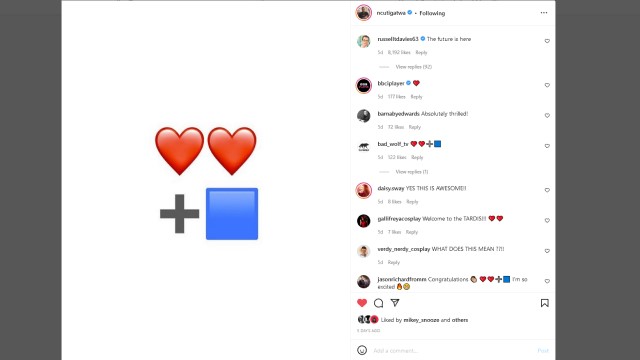
But the breaking of the news on Instagram to Gatwa’s own 2.7m followers does seem a watershed moment. This is the first of Doctor Who actors to be revealed on social media, aided by the actor’s own ability to spread the word to the masses. After all, the @bbcdoctorwho account on Instagram has 0.7m followers (less than a third of Gatwa’s.)
The news spread more organically this time, too. Doctor Who fans were looking to learn more about Gatwa, whilst Ncuti Gatwa fans were wanting to learn more about Doctor Who. The conversation was hard to ignore across all social media platforms.
The announcement was also timed to coincide with the BAFTAs, where Gatwa was both a presenter and a nominee. This was a canny move which guaranteed much press coverage without the need for any special, exclusive event. And it appears to have paid off, with almost every British newspaper and news site running stories about Gatwa, with quotes from him and Davies appearing the next day.
Which of the Doctor Who actors’ reveals do you remember most fondly? And which has been your favourite? Let us know!
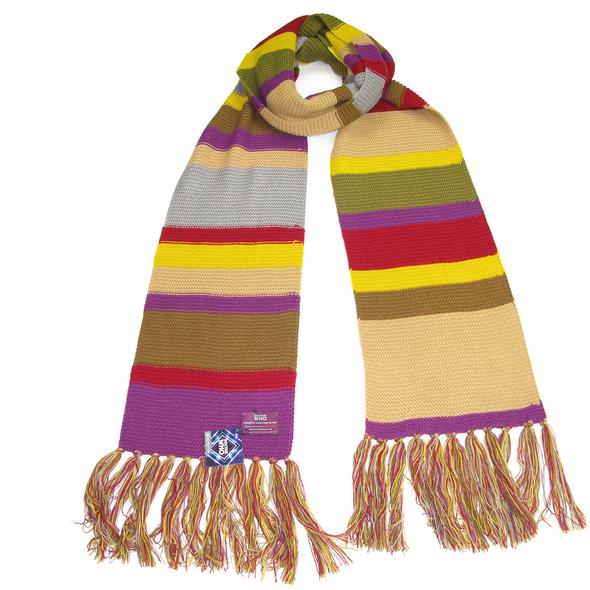
Doctor Who scarf – order now from the Lovarzi shop!
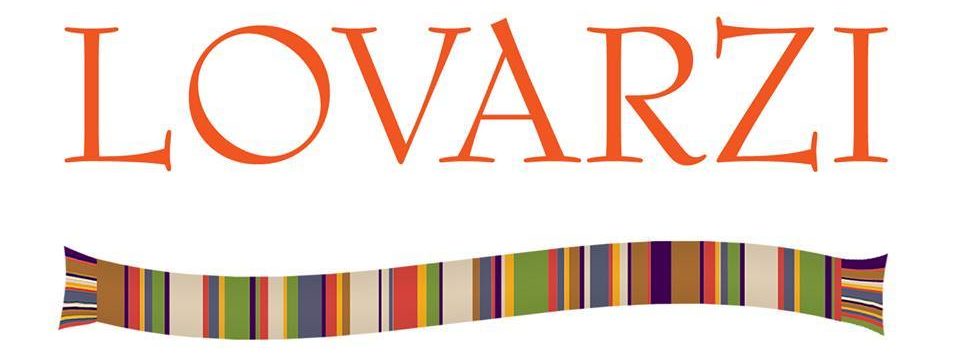


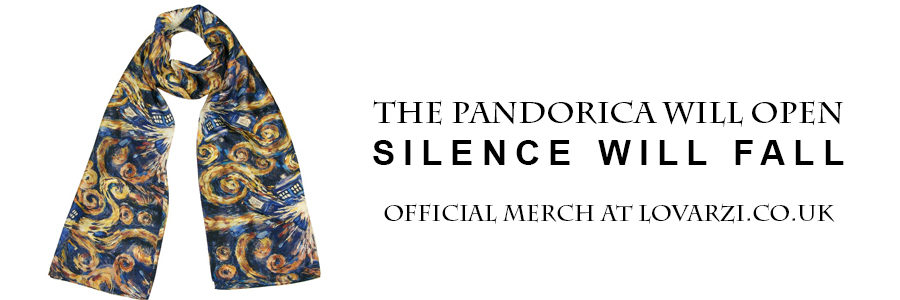

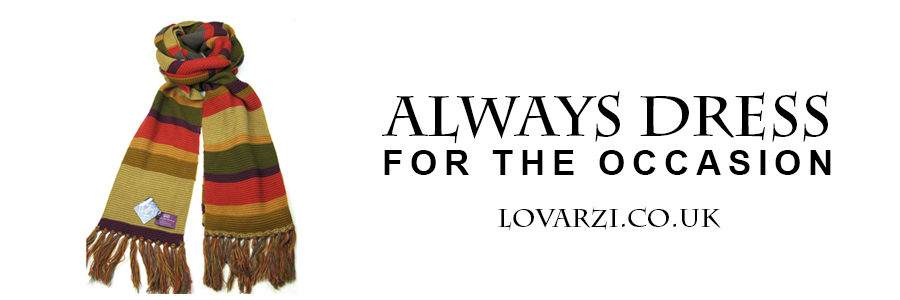

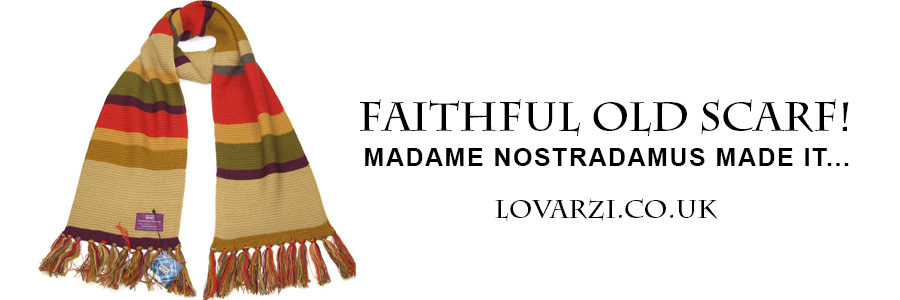
Leave a Reply